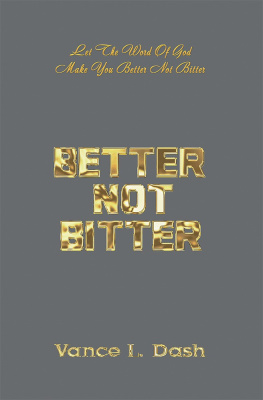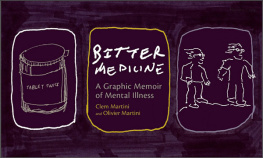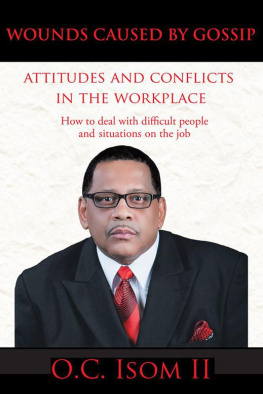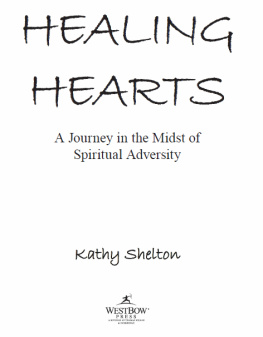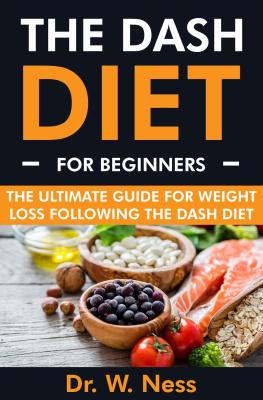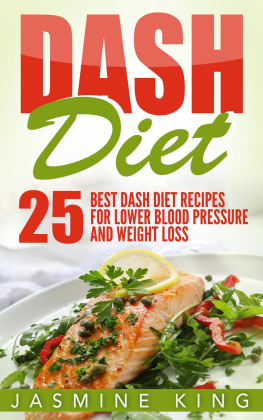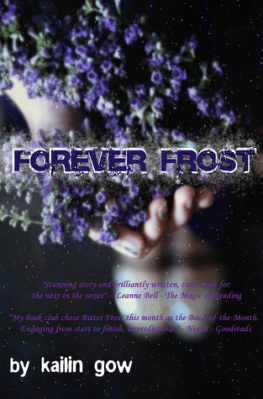BETTER
NOT
BITTER
LET THE WORD OF GOD MAKE
YOU BETTER NOT BITTER
VANCE DASH
COPYRIGHT 2018 BY VANCE DASH.
LIBRARY OF CONGRESS CONTROL NUMBER: 2018905985
ISBN: HARDCOVER 978-1-9845-2841-4
SOFTCOVER 978-1-9845-2842-1
EBOOK 978-1-9845-2843-8
All rights reserved. No part of this book may be reproduced or transmitted in any form or by any means, electronic or mechanical, including photocopying, recording, or by any information storage and retrieval system, without permission in writing from the copyright owner.
The views expressed in this work are solely those of the author and do not necessarily reflect the views of the publisher, and the publisher hereby disclaims any responsibility for them.
Any people depicted in stock imagery provided by Getty Images are models, and such images are being used for illustrative purposes only.
Certain stock imagery Getty Images.
Rev. date: 05/16/2018
Xlibris
1-888-795-4274
www.Xlibris.com
777667
CONTENTS
There are many hurting and damaged people in the body of Christ.
Most are products of their environment or victims of unwanted suffering. Many are crippled todayemotionally, psychologically, and internallyas a result of the painful infractions of the past. It is the will of God that we not only be saved but also be whole, complete, or entire in Him, lacking nothing.
CHAPTER ONE
PAIN OF THE PAST WE LIVE IN T HE REALM OF CONSCIENCE, WHAT WE SE E, HEAR, FEEL, AND EXPERIENCE
Cognizance is important in the subconscious. There are many things suppressed in the subconscious to avoid the reality and pain of that experience. But we must address these issues head-on so they wont devastate the health and wholeness of our present and future.
It is easier to block out and camouflage the abuse and violations of yesterday, but it will only handicap you and possibly jeopardize fulfilling, happy relationships.
The first step is to admit it and take ownership. The worst kind of deception is self-deceptionnot being able to admit you have scars, pain, remorse, anger, regret, bitterness, and resentment, and yes, unforgiveness.
Isaiah 43:18 states, Remember not the former things, neither consider the things of old.
The word rememb er in Hebrew is the word z akar , which means to recall or to make a memorial, a shrine of sorts.
The prophets admonition is for you not to park there, live there, or dwell there, neither consider the things of old.
Consider also the word biyn that has significance in the Hebrew language, which means to Mark, be attentive to, to regard. Part of your deliverance will be your ability to acknowledge it but not dwell on it. Isaiah 43:19 begins by saying, Behold, I will do a new thing and it shall spring forth.
Tsasmach in Hebrew means sprout, spring up, or bring forth. It is impossible to move forward while looking backward. The apostle Paul told the church in Philippi to forget those things that are behind. Epilanthanomai in Greek means no longer caring for, given over to oblivion, to lose out of mind.
This does not reference memory lapse but, rather, making a conscious decision not to dwell on it. You have to tell the enemy and negative thinking, Youre not living in my mind rent-free. LOL. Paul continues reaching forth to those things that are before you before translated to Greek is emprosthen that which is in front of you, your destiny, and your purpose. You must get what I call convenient amnesia when you choose to forget.
Without pain, or the absence thereof, we would not have the ability to feel. Pain is a reminder that our emotions and senses are operating efficiently. In the absence of it, we would never experience the healing power of God for the total man.
Pain, in many cases, is connected to your purpose. If not, why would David say, It is good for me that I have been afflicted, that I might learn your statutes.
Anah in Hebrew means physical, mental, and emotional anguish. Pain is also a teacherthat I might learn thy statutes. It informs us where to and where not to go or do. Pain as well is a prerequisite for birth.
Isaiah 66:7b states, Before her pain came, she delivered a man child. Verse 8 begins by saying, Who hath heard of such a thing?
The clause of this verse makes it very clear. As soon as Zion travailed, she brought forth her children. Chi yl is Hebrew for travail, which means to be in anguish, be pained, be sore, or be wounded.
Though uncomfortable and unpleasant, pain is a necessary ingredient in our growth and development process. These unwanted virtues develop maturation and character and exudes Christ in us, the hope of glory.
Certain pain produces discipline. He that suffers in the flesh cease from sin.
Lets be honest. In the words of one of the great prophets/preachers of our time, the best parent is transparent. We all have experienced some painstaking situation, struggle, incontinence, or concupiscence that we could not break. But by the power of the Holy Ghost and the hardship of the situation, it brought a level of brokenness and surrender that led to our deliverance.
By no means am I implying that we self-inflict pain to get closer to God. In the earlier centuries, during the time of the great Reformation, the patriarchs of the Protestant church were living like John Wesley, Martin Luther, Calvin, and others.
There was a group called the monastic order. They believed that in order for an individual to get closer to God and to identify with Christs suffering, theyd beat themselves daily by cutting and thrashing, as well as depriving themselves of daily necessities.
This is not the message I want to convey. Simply put, pain produces character and the peaceable fruit of righteousness in us. 1 Peter 5:10 states that after you have suffered paskho in Greek means to be affected, to endure painGod will stablish, settle, and strengthen you and will make you perfect. The Greek kat artizo means mend, complete, repair, adjust or equip you.
CHAPTER TWO
PRESENT EFFECT
Contrary to popular opinion, we are the product of our environment. The scars and baggage of the past can affect your present if not properly dealt with.
As a result of neglect and abuse, many have become bitter and repeat offenders of their violations. For example, in a past relationship, a person was traumatized, heartbroken, and crushed. They will develop trust issues, perhaps phobias, and some form of paranoia.
They fear of opening their hearts to love again, and the danger here is not receiving proper counsel and healing, thus isolating oneself and possibly pushing away who or what could be your blessing.
Here is another scenario: Someone violated your trust when it came to confidentiality. You poured your heart out to them and told them your most personal business, even secrets, only to discover they divulged them to others. Out of anger or some other reasons, this hurt you deeply. Now youve become withdrawn, introverted, and afraid to confide in anyone and get help and healing. Dont allow resentment to set in your heart. Retaliation is an option, but that makes you no better than the offender.
Stay focused, live in the present, not the past, and dont allow yesterday to affect today and devastate your tomorrow. Eulogize yesterday. The word eulogy in the Greek is eulogia , which means to speak well of, to give accolades, to render praise. Ive learned that when you bless your agony and learn to appreciate and value the negative that turned into a positive, you can say, Im better, wiser, stronger, and in a better place.
Lots wife was turned into a pillar of salt because she looked back. We as believers dont live in what was but, rather, what is and what shall be. Today is filled with opportunity, privilege, and possibility. Websters Dictionary defines the present as now, existing or in progress [wow], in the making, or constant.
Next page
